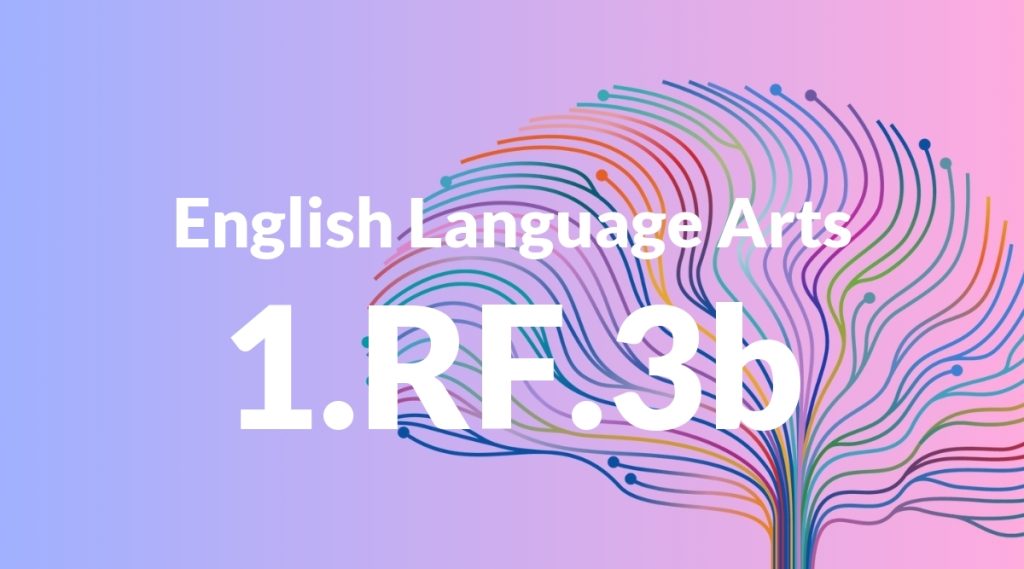Standard: 1.RF.3b – Decode regularly spelled one-syllable words.
Grade level: Grade 1
Subject: English Language Arts
Domain: Reading: Foundational Skills
Teacher Overview
This standard focuses on teaching Grade 1 students to decode regularly spelled one-syllable words. Mastery of this skill is crucial as it lays the foundation for reading fluency and comprehension. Students should have a basic understanding of the alphabet and phonemic awareness, including recognizing and producing letter sounds.
After mastering this standard, students will be able to decode more complex words, including multi-syllable words, enhancing their reading fluency and comprehension.
Common Misconception 1
A common misconception is that all one-syllable words follow the same phonetic rules. This is incorrect because there are various phonetic patterns that words can follow.
Intervention 1
To address this misconception, provide students with a diverse set of one-syllable words and guide them through decoding each word, highlighting different phonetic patterns.
Common Misconception 2
Another common misconception is that decoding is the same as memorizing words. Decoding involves understanding phonetic patterns, while memorization does not.
Intervention 2
Use interactive phonics activities to emphasize the importance of phonetic patterns over rote memorization. Encourage students to apply these patterns in new contexts.
Prerequisite Knowledge
Students should be familiar with the alphabet, the sounds each letter makes, and basic phonemic awareness.
Subsequent Knowledge
Students will develop the ability to decode more complex words, including multi-syllable words, and improve their overall reading fluency and comprehension.
Instructional Activities
- Phonics games focusing on one-syllable words
- Reading aloud simple books
- Word sorting activities
- Interactive whiteboard phonics exercises
- Matching words to pictures




